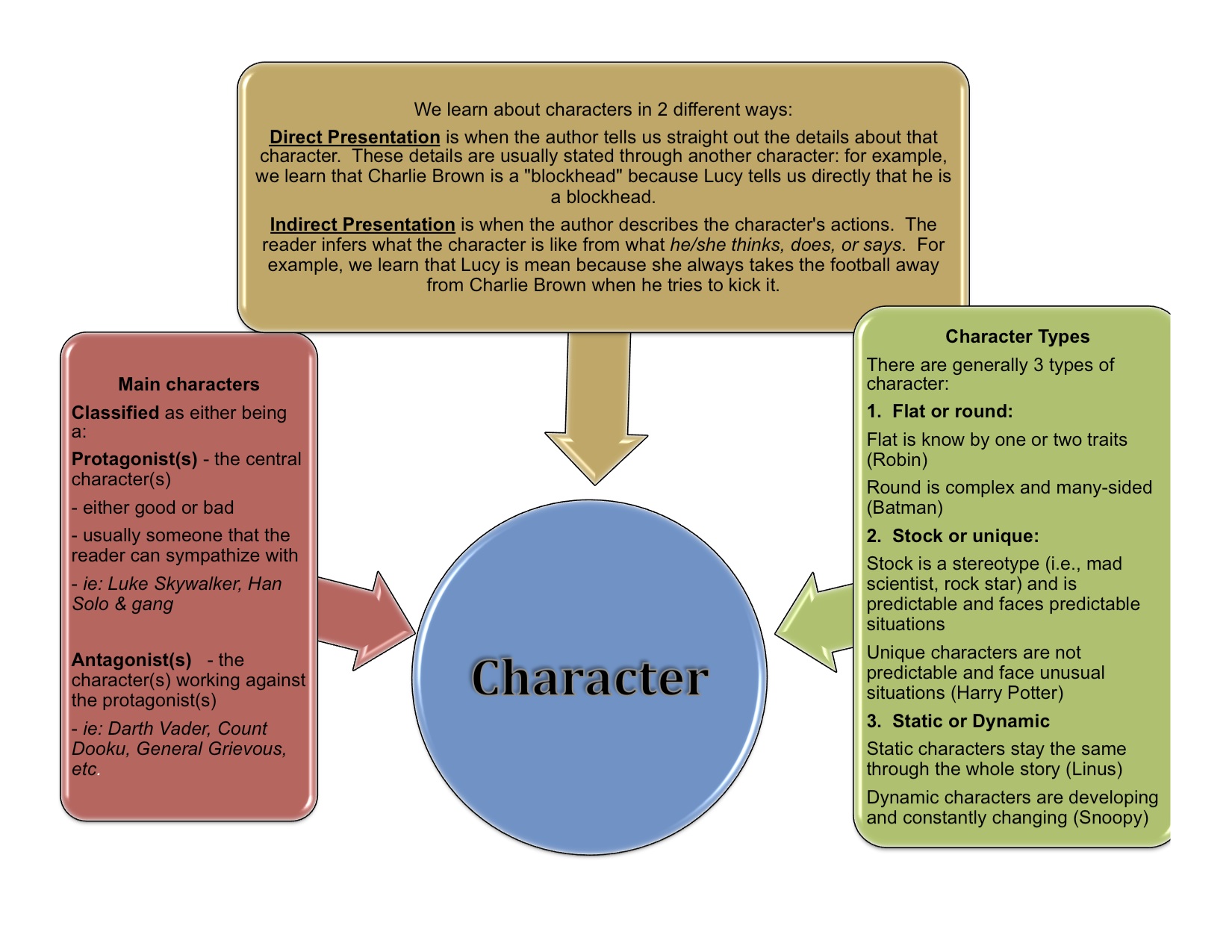Communication
ASSIGNMENT 4: Developing Characters
|
Learning Target (Curricular Competencies):
|
Task:
Writing about characterization involves how characters are revealed through action, dialogue, and thoughts. A successful character analysis will discuss values and traits of a particular character, how the character undergoes change, and/or what that person might represent.
- Review the chart below to learn about the different types of characters found in fiction and how to characterize them.
- Do you know the difference between indirect characterization and direct characterization?
- Do a 10 minute timed write that's a character sketch of a person you have read about in literature. Show, don't tell as you write about this character. Try using one of the graphic organizers in the folder at the top of the course. Brainstorm characteristics of this person. How might this character show a generous personality, for example? Watch the wikihow on writing character sketches to better understand.
- "Show, don't just tell" the character. Reveal the individual personality by actions. Use both direct and indirect characterization to describe the character.
- Submit your character sketch in whatever format you used to develop it.
Assessment: Below you will find the exemplary criteria used to assess the assignment.
Learning Target: (Exemplary 6/6): Exemplary comprehension of the task and clear accomplishment of the objective. Student demonstrates critical, creative, and reflective thinking to explore how language constructs personal and cultural identities recognizing how different features and forms of texts enhance and shape meaning and impact. Student demonstrates superior and insightful understanding of character development with both direct and indirect characterization.
Written Expression: Exemplary (6/6): Sentence structure and vocabulary are varied, skillfully written, and carefully chosen. Work has been proofread and there are few or no errors in spelling, capitalization, punctuation, and grammar. Content contributes to the central idea and makes insightful connections with logical organization.
Submission:
Use the "2.4 Developing Characters" link on the main page of this section of the course to upload your assignment to your teacher for marking.
